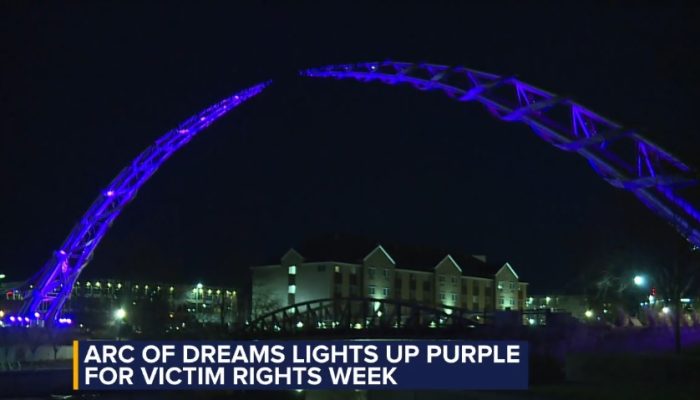This week, the Arc of Dreams is lit purple to commemorate National Crime Victims’ Rights Week.
Holly Wethor was inspired by her experiences navigating the criminal justice system as a victim; she decided to become a victim advocate and help those in abusive situations.
A victim advocate can be made available by the court system or through a counseling center. Continue reading “Arc of Dreams lit purple for National Crime Victims’ Rights Week”










